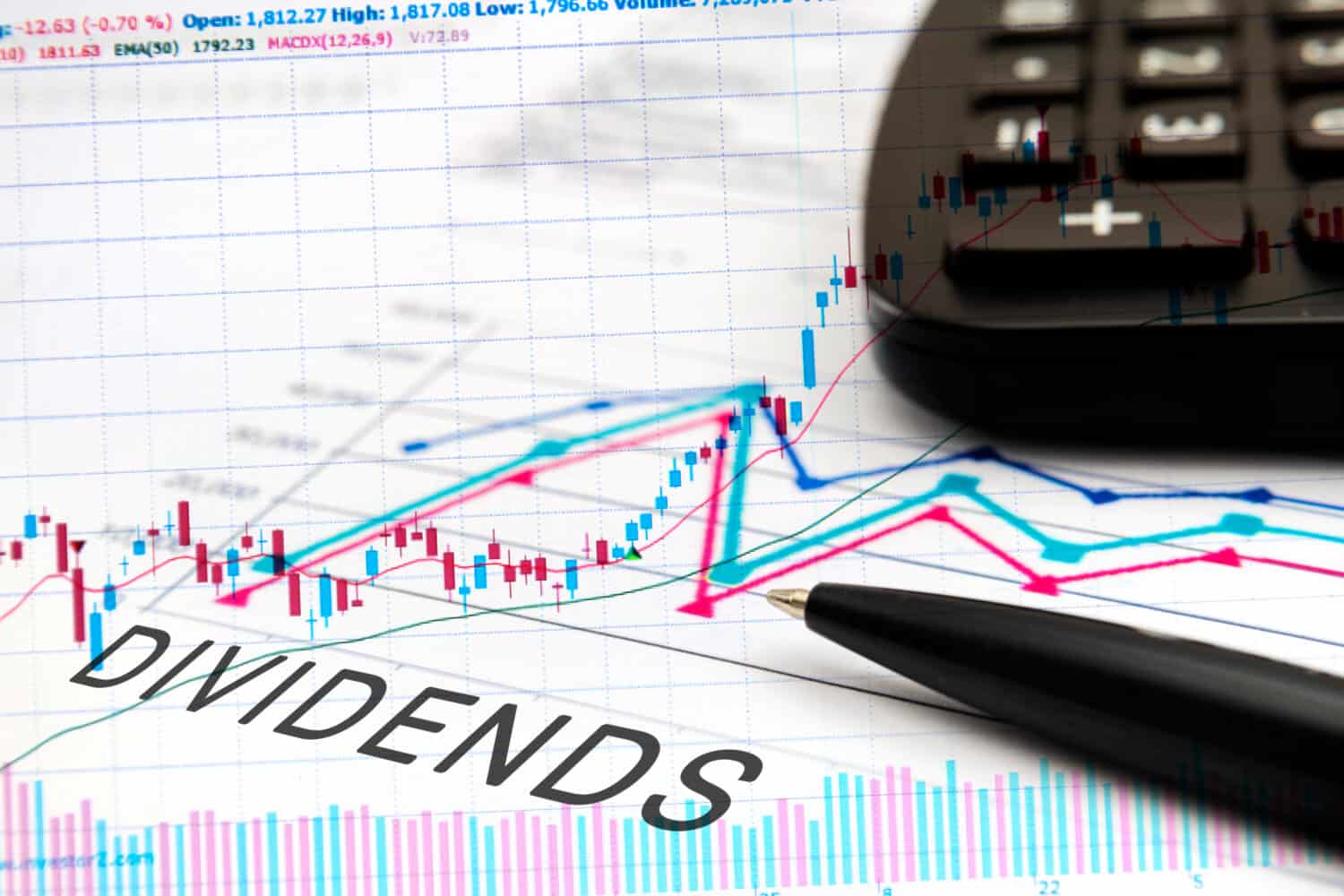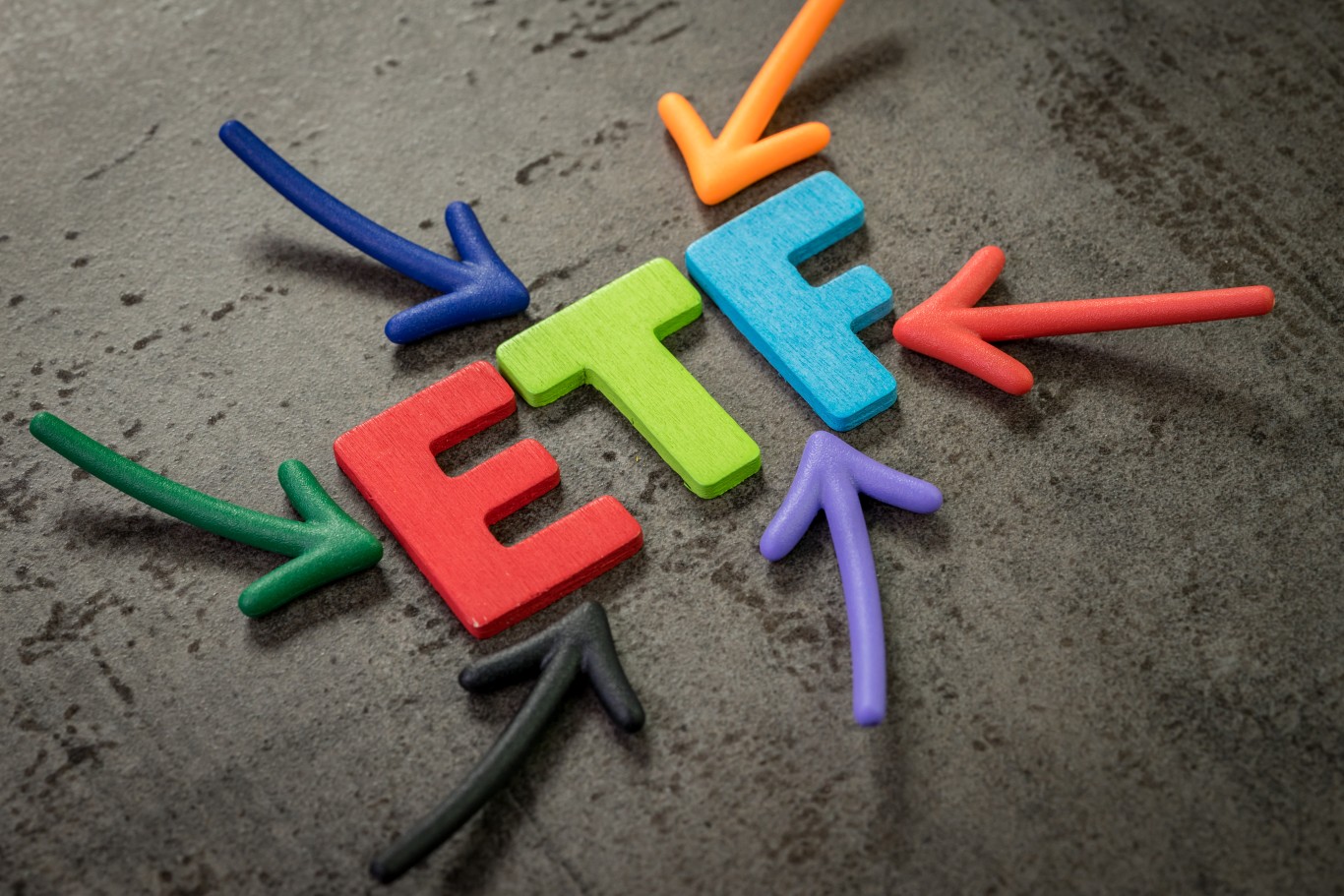Investing
This Huge Dividend Stock Just Announced a Big Stock Split and a Massive Dividend Hike

Published:

Investing in the stock market has been the surest way to build wealth over time. Year-to-year, however, there are numerous ups and downs. And you don’t even have to look back all that far either to see proof of that. Just the last four years has seen markets soar, then crash, then soar once again.
It’s why investors need a long-term outlook when buying stocks. The buy-and-hold investment philosophy helps smooth out all of those bumps along the way.
Yet you can boost your returns by investing in dividend stocks. Stocks that pay a dividend and then grow the payout over time can dramatically improve your results. Data from the Hartford Funds shows that since 1960, reinvested dividends are responsible for a whopping 85% of the cumulative total return of the S&P 500 index.
While there are a lot of dividend stocks to choose from, buying an exchange-traded fund (ETF) that owns all the best dividend stocks may be the best way to go. Arguably the best vehicle for doing so is the Schwab U.S. Dividend Equity ETF (NYSEARCA:SCHD), with over 100 dividend-paying stocks and a yield of 3.5%.

The Schwab ETF was created 13 years ago with the goal of tracking the total return of the Dow Jones U.S. Dividend 100 Index. Since inception, SCHD has steadily increased its dividend payment and has a total return of 402%.
With around 100 stocks in its portfolio, no one company accounts for an outsized position, but the six largest represent fully one-quarter of the total, or 4% or more.
Home Depot (NYSE:HD): 4.31%
Verizon (NYSE:VZ): 4.25%
Cisco Systems (NASDAQ:CSCO): 4.2%
BlackRock (NYSE:BLK): 4.19%
Pfizer (NYSE:PFE): 4.04%
Chevron (NYSE:CVX): 4.01%
These are all top dividend-paying stocks with long histories of rewarding shareholders by growing their payouts. The Schwab ETF reflects this growth. SCHD has increased its payout by nearly 11% annually on average over the past decade, though last year was its lowest increase with just a 3.8% hike.
Many had worried the good times were over for the ETF, but it may have just put all the hand-wringing to rest. Schwab U.S. Dividend Equity ETF just announced it was boosting its dividend by a huge 15.3% to $0.7545 per share, which follows on the heels of an even larger increase in the second quarter of more than 23%.
That means year to date, SCHD has hiked its payout by 14.3%, indicating it is returning to its historical trend.

Perhaps more exciting than the big dividend increase is that the ETF also just announced a three-for-one stock split to be effected after the market closes on Oct. 10.
Now we all know stock splits in and of themselves are meaningless. Nothing fundamental about a company’s business (or in this case the ETF) changes. You are just getting 12 slices of a pie instead of six. And each of those slices is now worth less based on the split ratio.
In SCHD’s case, the stock, which is trading just under $84 a share, will now be worth around $28 a stub based on the three-to-one ratio.
So why does it matter? Stock splits, when it comes to companies at least, often tend to be bullish signals about the future. Management feels its stock is too expensive and they want to make it more accessible to more investors to share in the growth that is to come. For the ETF, it’s slightly different.
For one, many might think a stock trading at $84 a share isn’t all that expensive to begin with. Nvidia (NASDAQ:NVDA) was trading at more than $1,000 a share before it split 10-to-1 while Broadcom (NASDAQ:AVGO) was going for around $1,550 a stub before its 10-to-1 split. So why is SCHD splitting its shares?
Schwab likes to keep its ETFs affordable for small retail investors. The asset manager has 31 ETFs it runs and 20 of them just announced a stock split, including its U.S. Dividend Equity ETF. It is not often that a Schwab ETF will stay near $100 a share for very long. The lower price can entice more investors to buy in.
When building your retirement portfolio, an exchange-traded fund like the Schwab U.S. Dividend Equity ETF offers instant diversity across a broad cross section of the market. It is a low-cost fund that tracks quality companies paying sustainable dividends.
With its history of raising the payout by double-digit percentages, it can serve as a core part of a diversified portfolio that can amply juice your returns over the long haul.
Want retirement to come a few years earlier than you’d planned? Or are you ready to retire now, but want an extra set of eyes on your finances?
Now you can speak with up to 3 financial experts in your area for FREE. By simply clicking here you can begin to match with financial professionals who can help you build your plan to retire early. And the best part? The first conversation with them is free.
Click here to match with up to 3 financial pros who would be excited to help you make financial decisions.
Have questions about retirement or personal finance? Email us at [email protected]!
By emailing your questions to 24/7 Wall St., you agree to have them published anonymously on a673b.bigscoots-temp.com.
By submitting your story, you understand and agree that we may use your story, or versions of it, in all media and platforms, including via third parties.
Thank you for reading! Have some feedback for us?
Contact the 24/7 Wall St. editorial team.